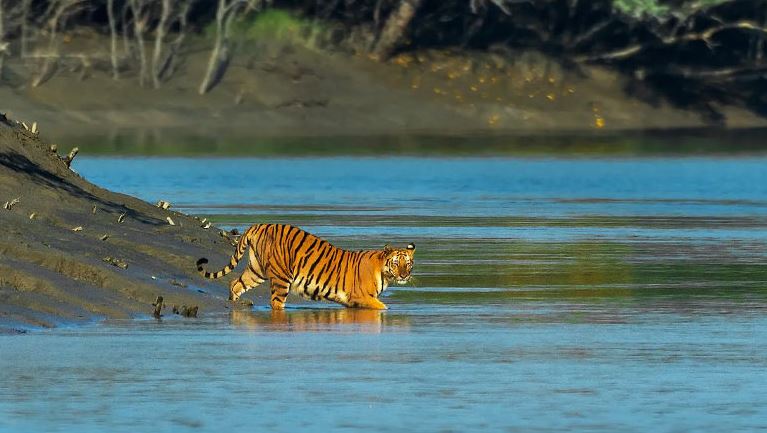News Flash

KHULNA, Oct 12, 2025 (BSS) - A 20-year "Sundarbans Ecotourism Master Plan" (2025-2045) has been formulated to preserve the ecological integrity of the world's largest mangrove forest while promoting sustainable domestic and international tourism.
Unlike traditional infrastructure-heavy projects, the master plan focuses on environment-friendly tourism that ensures both conservation and community development.
Once approved by the Forest Department, officials expect it to draw more foreign visitors to the UNESCO World Heritage site.
The three-year initiative was undertaken by the Bangladesh Forest Department in collaboration with Solimar International, with technical and financial support from USAID under its Ecotourism Activity pilot project.
Professor Dr. Md. Wasiul Islam, Deputy Chief of Party and a faculty member at Khulna University's Forestry and Wood Technology Discipline, led the formulation process.
Speaking to BSS, Dr. Wasiul said the plan took nearly two years to prepare and serves as a technical roadmap balancing environmental and economic priorities.
"Its implementation will accelerate tourism growth, strengthen local livelihoods, and enhance biodiversity conservation in the Sundarbans," he said.
He noted that the master plan aims to promote and manage eco-friendly tourism in and around the Sundarbans, thereby improving the socio-economic conditions of local communities while fostering long-term forest conservation.
"The project also looked into ways to attract more foreign tourists to increase foreign exchange earnings, which are vital for national economic growth," he added. "Foreign visitors are especially drawn to the Sundarbans' serenity and moonlit beauty-experiences that can significantly boost the sector if properly managed."
A key feature of the master plan is its community-based ecotourism model, developed through extensive consultations with a broad range of stakeholders, including the Forest Department, Department of Environment, universities, tourist police, local government bodies, Mongla Port Authority, national and regional tour operators, and local residents.
"Since the plan was developed in close coordination with local communities, the likelihood of conflict is minimal," Dr. Wasiul said. "Local people will directly participate in ecotourism activities and benefit socially, culturally, economically, and environmentally."
The plan prioritizes reducing dependence on forest resources by creating alternative, sustainable livelihoods through tourism, thereby helping maintain the forest's ecological balance.
"This approach will ease pressure on the mangrove ecosystem and strengthen its resilience against natural disasters such as cyclones and tidal surges," he added.
Under the project, more than 200 eco-guides have been trained to manage visitors and reduce human-wildlife conflicts. Their supervision will ensure controlled tourism, minimizing environmental harm while ensuring tourist safety.
Dr. Wasiul said hospitality and guest management training has also been provided to eco-cottage workers in areas like Dakope to improve service quality and local engagement.
For better visitor management, the plan recommends setting up information centers at key entry points-Mongla, Munshiganj, and Sharankhola-to assist tourists with boat arrangements, eco-guide hiring, and access to community-based tourism facilities.
Imran Ahmed, Conservator of Forests, told BSS that around 200,000 tourists visit the Sundarbans each year.
"Managing such large numbers while maintaining ecological balance and ensuring proper waste management is a major challenge," he said. "This master plan promotes responsible ecotourism without harming the forest-it's a timely and commendable initiative."
"The Sundarbans is our national treasure; its preservation and proper management are vital," he added, noting that the plan is currently awaiting approval from the Ministry of Environment, Forest and Climate Change. "Once implemented, Sundarbans ecotourism will make Khulna a major source of national revenue."
Local villagers near the Sundarbans expressed optimism about the initiative.
They said while some private cottages have previously faced complaints over irregularities and misconduct, government oversight under the new plan would ensure both environmental protection and community welfare.
Project officials hope the 20-year master plan will transform the Sundarbans into a model of sustainable tourism-promoting conservation, empowering local communities, and attracting nature enthusiasts from around the globe.